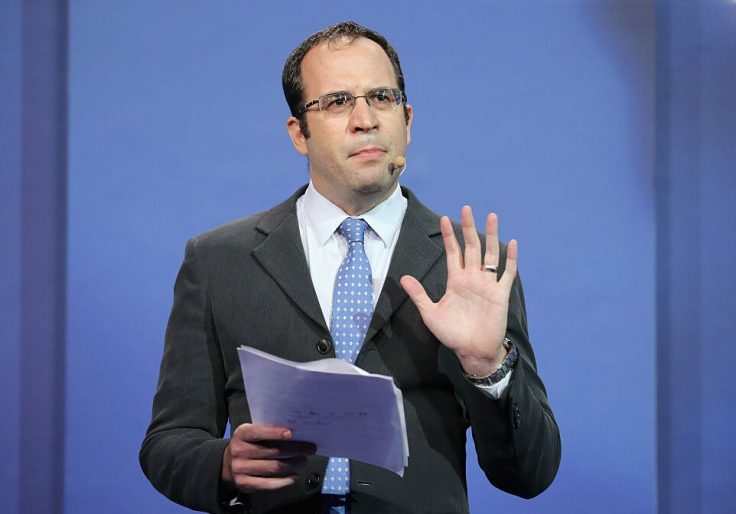College Board, the academic giant that administers the SAT, served as a "key partner" for the Chinese government for nearly two decades, helping it establish controversial Confucius Institute programs across the U.S. K-12 system, according to a new report.
Hanban, the Chinese government agency responsible for administering the Confucius Institute, has worked with the College Board for years to place government-approved Chinese teachers in American high schools across the country, according to a new report by the National Association of Scholars. The initiative has allowed Chinese teachers to teach Mandarin to tens of thousands of students. The College Board has also helped Hanban set up more than a dozen Confucius Institute classrooms, placing an organ of Chinese propaganda in the heart of some public school systems.
The report sheds light on the Chinese government's vigorous attempt to penetrate the K-12 system, mirroring its infiltration of college campuses through the Confucius Institute. Rachelle Peterson, an NAS scholar responsible for the report, said the partnership raises questions about whether it is appropriate for such a trusted American institution to lend its support for Chinese influence-peddling efforts targeting the country's youngest people.
"The College Board's relationship with the Hanban appears to be unique—it is so deeply wedded to the Chinese government," she said. "China has been especially aggressive in seeking Western partners who can lend to the Chinese government a veneer of credibility and respectability, and the College Board has received those offers with open arms."
Beijing claims that the work done by Hanban and the Confucius Institute is benign cultural diplomacy that seeks to promote Mandarin literacy and Chinese culture across the world. Critics—including a bipartisan cohort of congressmen—disagree. They identify the language programs as a thinly veiled attempt by the Chinese government to promote propaganda among the next generation of American youths. These critics point to the fact that the Chinese government oftentimes vets the Chinese instructors for the education programs and bars them from discussing sensitive topics such as the ongoing human-rights atrocities in Xinjiang, Tibet, and elsewhere.
College Board did not respond to a request for comment.
The partnership started in 2003 when Hanban paid $685,000 to the College Board to help the nonprofit develop its A.P. Chinese curriculum. The relationship has only deepened since then—Peterson said she identified up to six different partnerships between the College Board and the Chinese government. In 2014, College Board CEO David Coleman went so far as to identify Hanban as the "sun" that "lights the path to develop Chinese teaching in the U.S."
"The College Board is the moon. I am so honored to reflect the light that we've gotten from Hanban," he added.
The report found that the College Board helped establish five Confucius Institutes in public school districts across the country, where each institute oversees multiple Chinese classes in the district. The nonprofit also helped set up 15 Confucius Institute classrooms as well, which represent a smaller presence than full-fledged Confucius Institutes.
The College Board partnership has helped Hanban influence Mandarin education even in schools without Confucius Institute programs. The College Board jointly administers a guest teacher program with Hanban that has so far allowed more than 1,650 Chinese teachers to teach Mandarin in American schools. Hanban covers part of the expenses for the teachers, all of whom are vetted by the Chinese government. Hanban and the College Board also cohost the annual National Chinese Language Conference—the preeminent conference for Chinese language teachers attended by thousands.
"The College Board acts as a recruiter for the Chinese government," Peterson said. "The Chinese government runs these programs targeting students and teachers and funds them. And the College Board goes around and encourages people to join, using its name and appeal to quell any fears."
Peterson said that Hanban's partnership with the College Board is just the latest example of how the Chinese government exploits weaknesses in American institutions to protect its national interest. She said a society-wide reckoning about China's penetration of U.S. society is long overdue.
"The Chinese government is aggressive. It exploits every opportunity to turn an institution against its own values and toward the interests of the CCP," she said. "We need to open our eyes to this and grapple with the reality that China is strategically targeting our institutions to try to work from within our own society."
